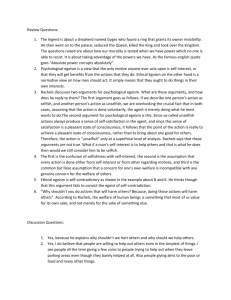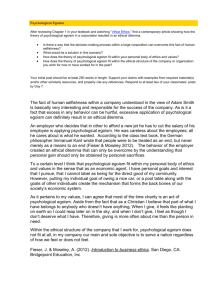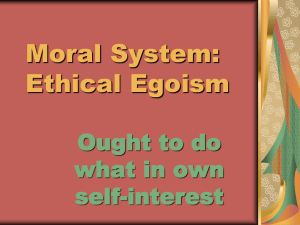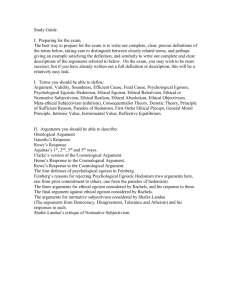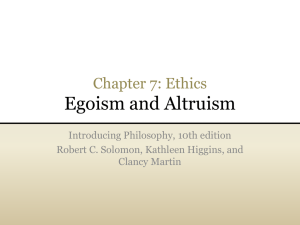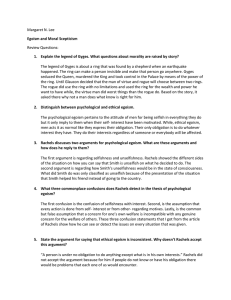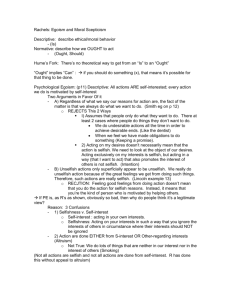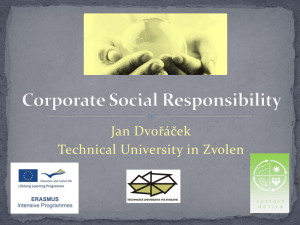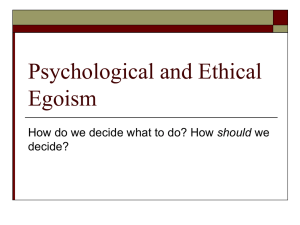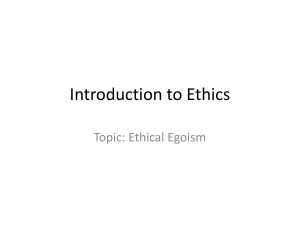ITETHIC O0A Anna Dy 10893776 September 28, 2010 Article
advertisement
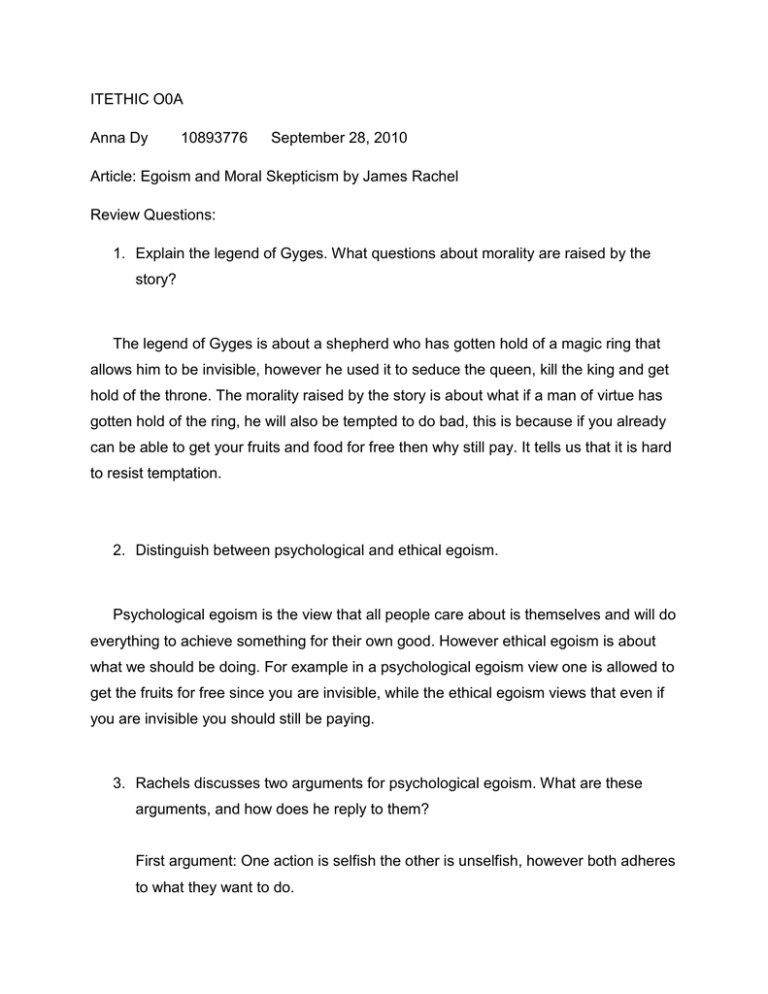
ITETHIC O0A Anna Dy 10893776 September 28, 2010 Article: Egoism and Moral Skepticism by James Rachel Review Questions: 1. Explain the legend of Gyges. What questions about morality are raised by the story? The legend of Gyges is about a shepherd who has gotten hold of a magic ring that allows him to be invisible, however he used it to seduce the queen, kill the king and get hold of the throne. The morality raised by the story is about what if a man of virtue has gotten hold of the ring, he will also be tempted to do bad, this is because if you already can be able to get your fruits and food for free then why still pay. It tells us that it is hard to resist temptation. 2. Distinguish between psychological and ethical egoism. Psychological egoism is the view that all people care about is themselves and will do everything to achieve something for their own good. However ethical egoism is about what we should be doing. For example in a psychological egoism view one is allowed to get the fruits for free since you are invisible, while the ethical egoism views that even if you are invisible you should still be paying. 3. Rachels discusses two arguments for psychological egoism. What are these arguments, and how does he reply to them? First argument: One action is selfish the other is unselfish, however both adheres to what they want to do. Rachels answers the argument as it is dependent on object of the want. If it would mean I want something for me but not for the others then it is selfishness, however if it is about I want others to be also be good then it is not selfishness. Second Argument: “Unselfish”is only at a superficial level. Rachels answers the argument was that the unselfish man is the one who drives satisfaction from others and the selfish man does not. 4. What three commonplace confusions does Rachels detect in the thesis of psychological egoism? “The first is about the confusion of selfishness with self-interest.” “The second confusion is on the assumption that every action is done either from self-interest or from other regarding motives” “The third confusion is the common but false assumption that a concern for one’s own wellness is compatible with any genuine concern for the welfare of others.” 5. State the argument for saying that ethical egoism is inconsistent. Why doesn’t Rachels accept the argument? “It is possible for people to act altruistically, and perhaps many people do act that way. – But there is no reason they should do so. A person is under no obligation to do anything except what is in his own interest.” Rachels does not agree with the argument because he believes that everyone is motivated by self-regard. 6. According to Rachels, why shouldn’t we hurt others, and why should we help others? How can the egoism reply? We should not hurt others because we should be good and promote welfare of others. The egoists does not care about people and they don’t mind if they get to hurt others.
